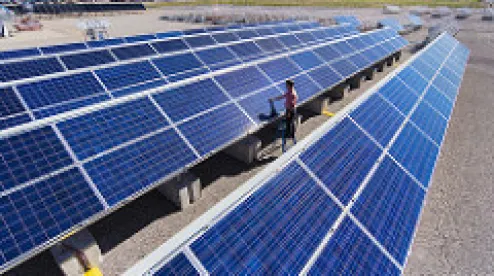After ending formal sessions in July, Massachusetts lawmakers will convene in informal sessions for the remainder of the year, and no controversial legislative matters are expected to pass during this time.
We present a forecast and analysis of the key developments to expect in Massachusetts on energy-related matters for the remainder of this year and into the 2017-2018 legislative session. To learn more about Massachusetts’ energy forecast, read on!
Massachusetts Energy Forecast:
-
The change in the Senate chairmanship of the Joint Committee on Telecommunications, Utilities and Energy triggered by Senator Ben Downing’s retirement will likely delay the start of any such initiative in the legislature until later in the spring of next year, at the earliest.
-
Nevertheless, expect solar advocates to push for legislation in the next session that further lifts the capacity caps on solar incentives in the state. Likewise, energy efficiency advocates may well try to expand funding options by resurrecting so-called residential PACE legislation which was enacted by the House last session but did not survive the conference committee for the bill enacted last summer.
-
The Department of Energy Resources (DOER) will continue to develop a new solar incentive program to replace the SREC II program as mandated by the solar legislation passed last April. Qualifying units will be eligible to receive SREC II credits until January 8, 2017, and after this date projects that do not qualify for an extension will need to seek incentives under the new program.
-
The legislature will be faced with the question of what, if anything, it will do to expand natural gas pipeline capacity in the state after the Supreme Judicial Court’s ruling in August vacating the Baker Administration’s plan to allow electric distribution companies to recoup the cost of contracting for gas pipeline capacity from ratepayers. A measure preventing electric ratepayers from funding the expansion of the region’s natural gas pipeline capacity was included in the Senate version of the recently approved clean energy imports bill, though it did not make it into the final legislation. The prospect of success for legislation designed to expand gas pipeline capacity in the state appears slim. Many legislators, especially those in the Senate, seem to oppose the idea.
-
Throughout the fall, New England Power Pool (NEPOOL), the regional congress of electricity market participants, will engage on a consultative process seeking to reach an agreement among market participants on the changes to the market that will deliver the carbon reductions sought by New England states. This effort was initiated in response to concerns about the proper functioning of energy markets triggered by the recently passed legislation in Massachusetts and the Regional Clean Energy RFP.




 />i
/>i

